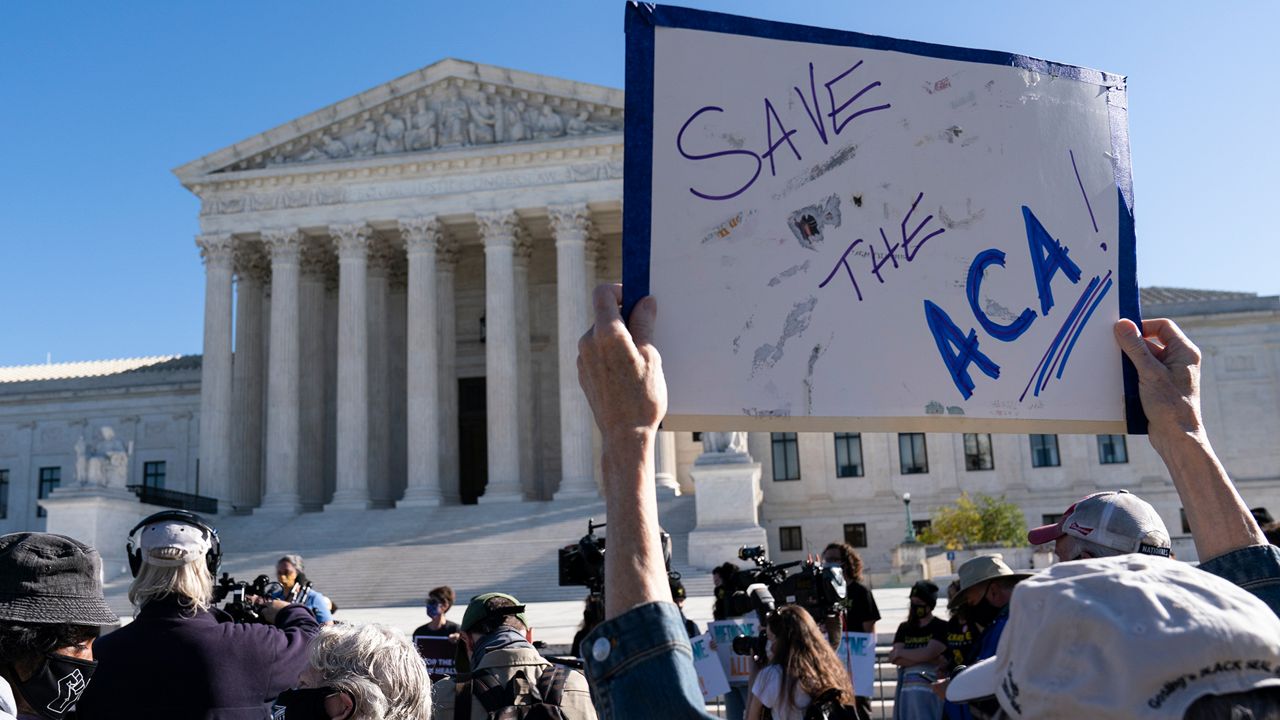TEXAS — Texas is seeing a significant jump in the number of people signing up for health insurance plans under the Affordable Care Act this year, as hundreds of thousands of people have lost their benefits as a result of job loss during the pandemic.
As of Nov. 20, about 383,000 Texans have enrolled in a health insurance plan under the act, commonly referred to as Obamacare, according to the Episcopal Health Foundation, a nonprofit organization that tracks data from the National Center for Medicare and Medicaid Services.
That’s a 15% increase in the number of new enrollees compared to the same period in 2019.
The new enrollees have signed up during the annual open enrollment period, which lasts for six weeks each year. Open enrollment started on Nov. 1 and ends on Dec. 15.
Total new enrollments will likely increase in the next two weeks as most people tend to wait until the last week to complete their application, said Elena Marks, the president and chief executive officer at the Episcopal Health Foundation.
Last year, about 1.1 million people signed up for a plan during the open enrollment period.
The uptick in enrollment numbers comes at a time when the rate of Texans without health insurance is climbing as the pandemic ravages the national and state economy and creates record-setting job losses.
Still, Texas entered the pandemic with the highest rates of uninsured in the country, both by the percentage of the population and by the number of those without any coverage at all.
In 2019, 18.4% of Texans were without coverage, twice the national average of 9.2%, according to U.S. Census Data.
Today, most experts estimate those without any coverage are likely to be far greater in numbers as a result of the COVID-related economic crisis.
Since March of this year, when the Coronavirus pandemic kicked off in the state of Texas, 3.9 million people have filed for unemployment.
Texas' unemployment rate as of October was 6.9%. That rate is down from its September rate of 8.3%, but still double the rate from October 2019, when it was 3.5%.
Many who lost their jobs also lost their employer-provided health insurance plans, meaning thousands more were left without medical coverage as COVID infection rates increased across the state and country.
According to FamiliesUSA, a nonpartisan health care advocacy group, approximately 5.4 million Americans were left uninsured after losing their jobs in the first few months of the pandemic, between February and May. In Texas, that resulted in 659,000 additional people losing their employer-sponsored insurance as of May 2020.
California had a slightly higher rate of recently uninsured persons at 689,000 during the same period, according to statistics from FamiliiesUSA.
The new enrollments for ACA seen today are likely a result of more people being left without health insurance as well as people worrying about how they will pay their medical bills should they or their family get sick with COVID.
During open enrollment, nonelderly people seeking health insurance that is not provided by their employer can log on to the federally sponsored website healthcare.gov to sign up for a plan for themselves and their family. Prices are based on income and desired coverage, plus several other factors, including whether the person smokes.
Texas has been “hostile” to the Affordable Care Act and is one of 12 states that did not adopt the Medicaid expansion, Marks said.
The Medicaid expansion allowed states to expand Medicaid coverage to more people with low incomes through federal funding.
As a result, millions in Texas were left uninsured by falling into what health policy experts refer to as the “coverage gap,” she said.
The Kaiser Family Foundation, a nonprofit, California-based organization focusing on national health issues, estimated that if Texas chose to expand Medicaid, 878,000 nonelderly adults who were uninsured before the pandemic because of the “coverage gap” would be eligible by 2021.
Kaisar estimated Texas had 1.77 million uninsured people before the pandemic.
President Donald Trump promised to replace the Affordable Care Act during his term in office but failed to do so. President-elect Joe Biden, who was vice president when the act was signed into law, said in his campaign that he will strengthen it.
Health care is likely to be an important topic during the upcoming session of the Texas State Legislature, particularly as the government begins outlining and passing a budget.
Whether the Republican-dominated bicameral legislature will make any significant changes to the current budget or to urging the government to accept Medicaid expansion, there might be some hope the pandemic’s impact on Texans will change some minds, Marks said.
The rise in the number of uninsured from COVID job losses has led many in the general population to think more about the value of health insurance, Marks said.
That could influence Texas lawmakers, who have heard concerns from their constituents during the last eight months of the pandemic.
“I'm hoping that it will help persuade legislators to understand that for a substantial group of people, Medicaid expansion is the only solution and that it is actually affordable to the state more so than leaving these people uninsured,” she said.
